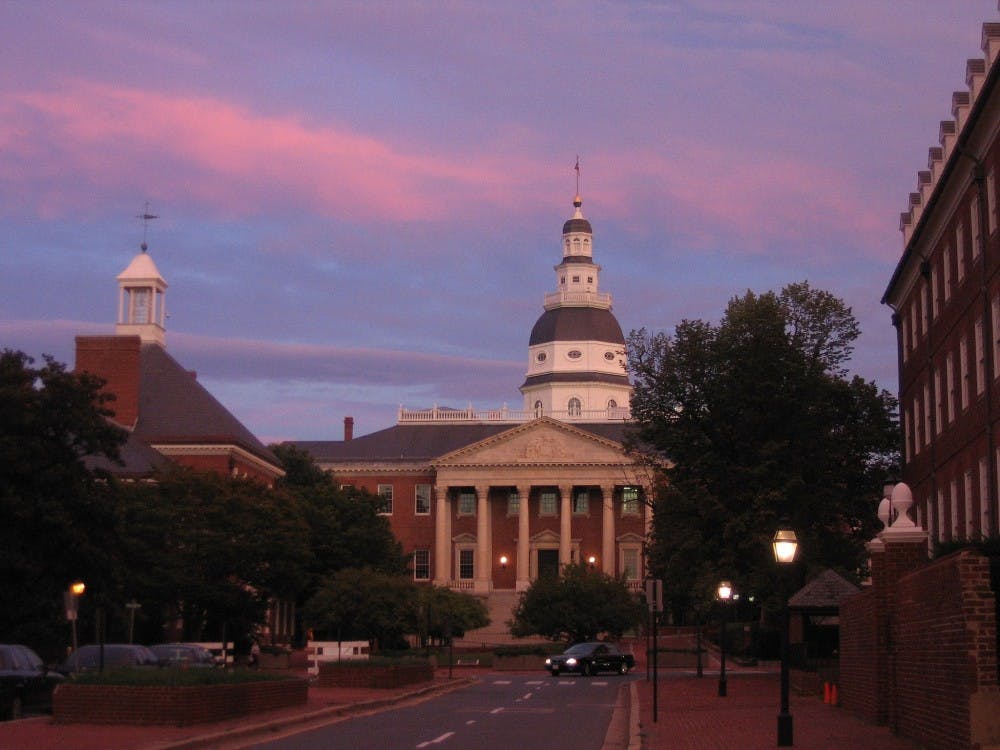On Thursday evening, the Baltimore City Senate delegation to the Maryland General Assembly voted 3-2 in favor of legislation that will allow the University to create a private police force.
Senators Antonio Hayes, Cory McCray and Shirley Nathan-Pulliam voted in favor of the bill titled the “Community Safety and Strengthening Act,” while Senators Mary Washington and Jill Carter voted against it. The sixth member of the delegation, Senator Bill Ferguson, recused himself from the vote because he is a University employee.
The Baltimore City House delegation will likely vote on the legislation on Tuesday. Next, the bills Senate Bill 793 and House Bill 1094 will need to pass through the Maryland State Senate and House, respectively, before they become law.
Though the vote was planned for Wednesday, Hayes, the senator who sponsored the bill, moved to delay it to Thursday. During the session on Wednesday, City senators endorsed amendments to the legislation, which include: requiring that 25 percent of officers come from Baltimore; requiring officers to wear body cameras in compliance with the Maryland Public Information Act; and limiting the areas that Hopkins police officers would be allowed to patrol.
For officers to patrol neighborhoods in the vicinity of Hopkins campuses, the University would have to seek permission from community associations. Without these permissions, patrols would be restricted to the Homewood, Peabody and East Baltimore Campuses.
In an email to The News-Letter, University Vice President for Communications Susan Ridge expressed support for the senators’ decisions.
“We appreciate that the Baltimore City Senate Delegation voted to support the Community Safety and Strengthening Act and the role that a university police department can play in reducing violent crime,” Ridge wrote. “We also recognize the substantive work and consideration the delegation put into the amendment process and appreciate that these changes address our goal of ensuring public accountability and public transparency.”
Students Against Private Police (SAPP) member and Bloomberg School of Public Health graduate student Meridian Howes travelled to Annapolis, Md. to hear senators discuss the bill. Howes was disappointed by the proceedings they witnessed.
They explained that some amendments Washington and Carter proposed could have increased the accountability of a Hopkins police force but were voted down.
“One amendment was proposed that would require representatives from the student assembly at Homewood and the Black Student Union to be on an oversight committee, and that was voted down,” Howes said. “It’s very clear that there’s not interest on the University’s part or on the part of McCray and Hayes and others who have been voting down these [amendments] to actually increase community accountability or to actually listen to any constituents.”
Kevin Cleary, who worked for the Baltimore City's Mayor's Office of Emergency Management before his retirement, lives near Homewood Campus and was relieved that the City senators voted in favor of the bill. He had hoped that it would pass through the state legislature.
“Forty years ago as a student, I might’ve been on the other side [of the debate]. But I’ve spent a lot of time working closely with police officers, looking at crime numbers, and we’re not doing well in this city. We need more well trained, properly supervised police officers,” Cleary said. “The people at Hopkins that are hired to create their police force are very capable of doing that.”
He explained that the amendment restricting the force to 100 officers would make it significantly more manageable.
“Even when it’s fully staffed, 100 officers is a very small agency. It’s really no bigger than a district. And I’ve seen district commanders be able to have complete control over how their officers respond,” he said.
Cleary believes that the accountability board will be instrumental in allowing Baltimore community members to hold Hopkins police officers accountable. He felt, however, that the amendment requiring the Senate to confirm each member of the accountability board was questionable.
“The Senate’s only in session for a very short period of time, so mid-January to mid-April,” he said. “It really weakens the purpose of the accountability board that it has to wait to get the Senate confirmation for its appointments.”
According to Cleary, this vote will be instrumental in convincing State senators to vote in favor of the bill. He explained that in his experience, legislators from other jurisdictions in Maryland tend to defer to those from the jurisdiction that the bill would most affect when deciding which way to vote.
On Thursday evening after the vote, SAPP and the Billie Holiday Project for Liberation Arts, a University initiative aiming to improve connections between Homewood and the Baltimore African-American community, co-sponsored a community panel and meeting about policing alternatives.
Author Dayvon Love was on the panel representing grassroots Baltimore think tank Leaders of a Beautiful Struggle. Love felt that there were still significant hurdles that the bill would need to clear before it could become law.
“If [the House] knew they had enough votes, it would have passed by now, and the fact that it hasn’t yet is a testament to all of the public pressure in opposition to the police force,” Love said. “Even though it did get out of the Senate Delegation, there is still a lot to go. The fact that it has taken this long for a delegation that only has five members [to vote] says a lot about the power of public pressure.”
Panel moderator and History Professor Lawrence Jackson emphasized that the fight against a University private police force would be a long and ongoing journey. According to Jackson, those involved should continue to persist.
“The bill that was introduced last year was dramatically different from what has been marginally passed this afternoon, so we are making some serious strides, and we should feel good about our progress,” he said.
The News-Letter reached out to all five senators who voted on the bill. Senator Shirley Nathan-Pulliam declined to comment. Senators Antonio Hayes, Cory McCray, Mary Washington and Jill Carter did not respond by press time.
Meagan Peoples contributed reporting.





